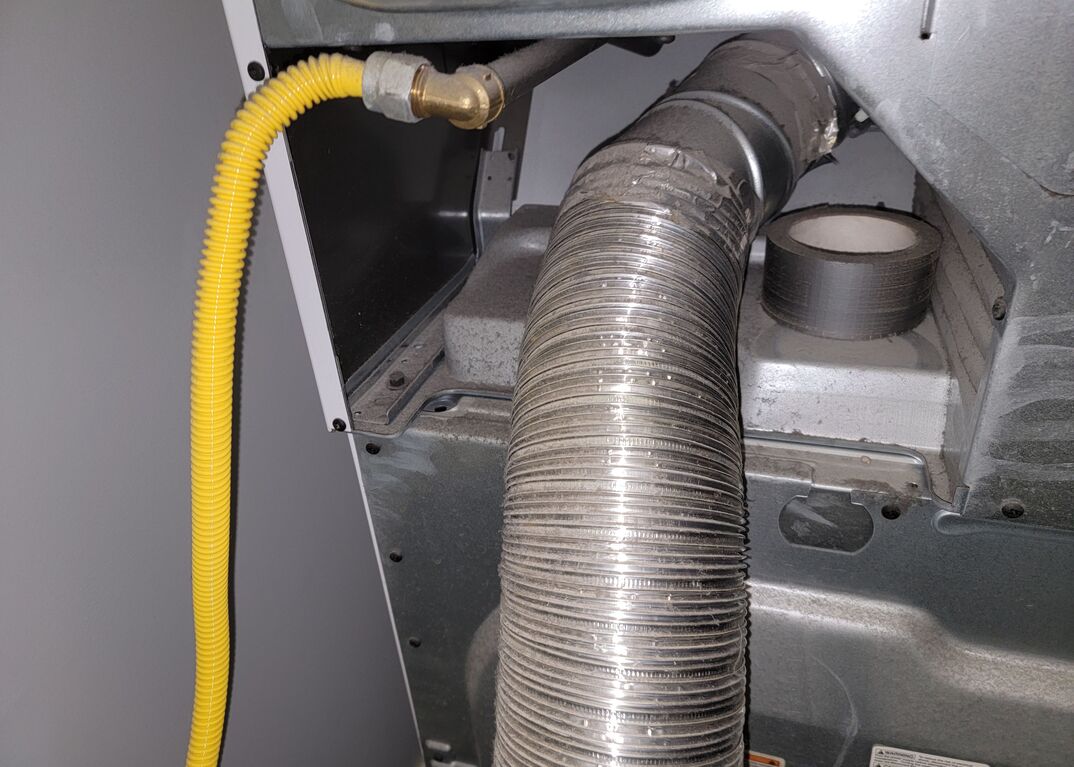Dryer vents play an important role in safely exhausting hot, moist air from your dryer. However, built-up lint and debris can clog vents, and cause issues that signal to clean is overdue. Here are key signs to watch for:
Longer Drying Times
When a vent becomes restricted with lint, less hot air escapes during drying cycles, leading clothes to take longer to dry. If drying the same loads starts taking noticeably more time, your vent likely needs cleaning.
Excessive Humidity
Clogged dryer vents cannot adequately expel hot, moist air from drying clothes. This extra humidity lingers inside, raising indoor moisture levels that promote mold, musty smells and allergens. Check for excess humidity or condensation as a warning sign.
Dryer Overheating
Lint buildup acts as insulation, trapping heat inside the dryer that has trouble escaping out the vent. This can cause internal temperatures to rise, potentially tripping the thermal fuse or damaging internal components. Watch for hot spots on your dryer as an indication of blocked air flow.
Visible Lint Accumulation
Debris and loose fibers from clothes naturally accumulate inside dryer vents over time. However, excess visible lint on screens, ducts or around the vent opening points to blockage that requires cleaning to resume normal airflow.
Cracking or Collapsing Vents
Dryer vent ducts made of vinyl or aluminum can eventually collapse inward from excessive negative air pressure as they become occluded with lint. Cracks or loose joints also signal corrosion and reduced airflow effectiveness.
Frequency of Cleaning
To detect issues early and ensure efficient drying, have your dryer vent professionally cleaned:
- At minimum once per year for homes with gas dryers
- Twice per year for an electric dryer in constant use
- After drying large amounts of fleece, towels or other “fluffy” fabrics that generate excess lint.
A Comprehensive Cleaning
Professional dryer vent cleanings address these areas:
- Removing lint buildup from the entire vent system – ducts, pipes, traps and vent hood.
- Inspecting for any damage, cracking or corrosion of the vent material.
- Sealing duct joints with special tape to optimize air flow.
- Checking inside the dryer cabinet and drum for any remaining debris.
In summary, signs like excess drying times, humidity, overheating or visible lint indicate your dryer vent likely needs for you to clean it. Having vents professionally checked and cleared at least yearly can help appliances perform efficiently, reduce energy costs, lessen fire risks and extend the life of your dryer.

